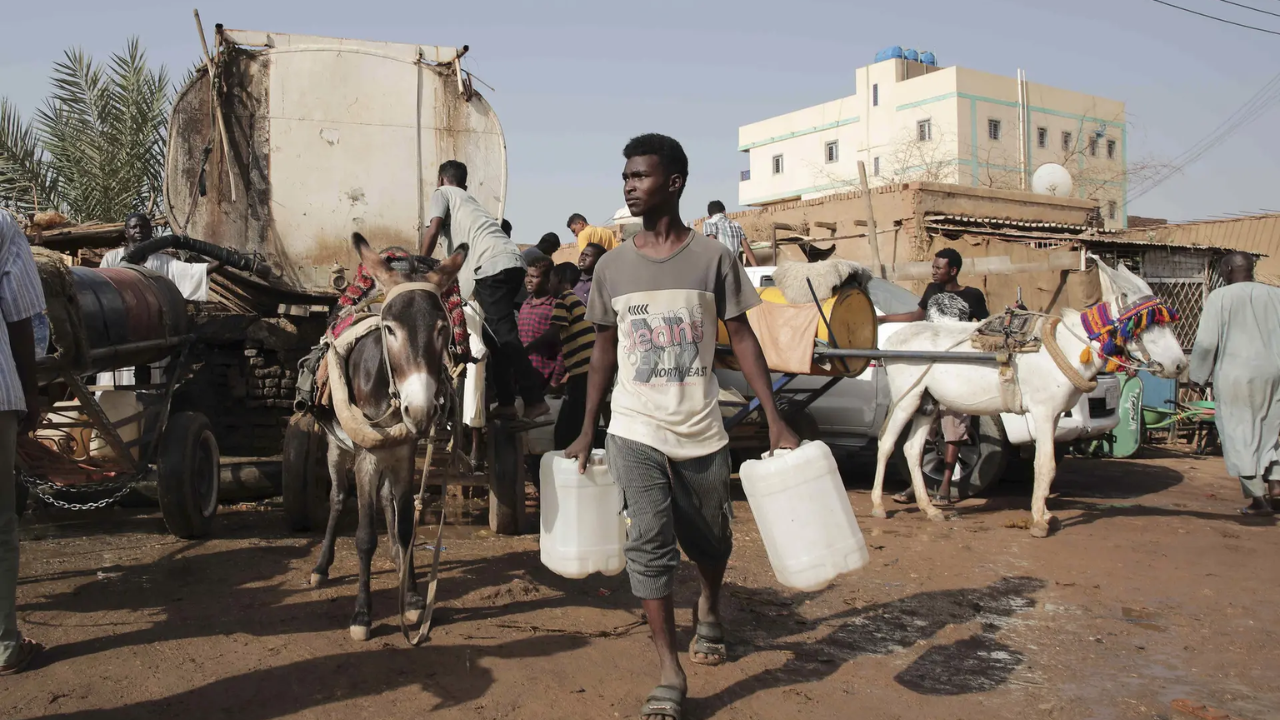The famine in one of the vast camps for displaced people in Sudan‘s Darfur region is spiralling out of control as the country’s warring factions obstruct aid efforts. US officials cautioned on Friday that this crisis could surpass the severity and fatality of the world’s most recent major famine, which occurred 13 years ago.
In response to the formal confirmation by international experts in the Famine Review Committee that starvation in at least one of the three enormous improvised camps, housing up to 600,000 war-displaced individuals, had escalated into a full-fledged famine, the US Agency for International Development, the UN World Food Program, and other independent and government humanitarian organisations are intensifying their calls for a cease-fire and aid access throughout Sudan.
Two US officials, speaking anonymously as per the briefing’s ground rules, provided reporters with their analysis of the crisis on Friday following the famine finding, which marks only the third such occurrence in the Famine Review Committee’s 20-year history.
The humanitarian community’s worst fears are being realised by the obstacles that Sudan’s warring factions are placing on food and other aid for the civilians trapped in the Zamzam camp, according to one of the US officials.
The conflict in the northern African nation erupted in April 2023 when two rival generals, both with international support, abruptly engaged in a deadly battle for control of Sudan’s capital, which was then under a civilian transitional government that Sudanese had hoped would bring stability to the country.
The Rapid Support Forces (RSF), one of the factions involved, emerged from the Janjaweed militias, notorious for their mass attacks, rape, and forced displacement of civilians in Darfur in 2003.
As the world’s attention was largely focused on conflicts in Ukraine, Gaza, and the broader Middle East, the Sudanese war rapidly escalated into the world’s most severe humanitarian crisis. The United Nations reported last month that 10.7 million people were displaced due to the conflict, with much of the country experiencing acute hunger, unlike the previous war.
In response to the formal confirmation by international experts in the Famine Review Committee that starvation in at least one of the three enormous improvised camps, housing up to 600,000 war-displaced individuals, had escalated into a full-fledged famine, the US Agency for International Development, the UN World Food Program, and other independent and government humanitarian organisations are intensifying their calls for a cease-fire and aid access throughout Sudan.
Two US officials, speaking anonymously as per the briefing’s ground rules, provided reporters with their analysis of the crisis on Friday following the famine finding, which marks only the third such occurrence in the Famine Review Committee’s 20-year history.
The humanitarian community’s worst fears are being realised by the obstacles that Sudan’s warring factions are placing on food and other aid for the civilians trapped in the Zamzam camp, according to one of the US officials.
The conflict in the northern African nation erupted in April 2023 when two rival generals, both with international support, abruptly engaged in a deadly battle for control of Sudan’s capital, which was then under a civilian transitional government that Sudanese had hoped would bring stability to the country.
The Rapid Support Forces (RSF), one of the factions involved, emerged from the Janjaweed militias, notorious for their mass attacks, rape, and forced displacement of civilians in Darfur in 2003.
As the world’s attention was largely focused on conflicts in Ukraine, Gaza, and the broader Middle East, the Sudanese war rapidly escalated into the world’s most severe humanitarian crisis. The United Nations reported last month that 10.7 million people were displaced due to the conflict, with much of the country experiencing acute hunger, unlike the previous war.
Source : Times of India






